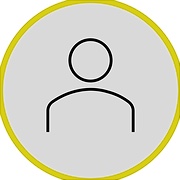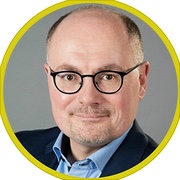Digital Humanities - How does it work?
- Event type: Workshop and lecture series
- Organisation: Hamburg State and University Library
- Funding period: 01.04.2023 to 31.03.2024
- Short title: Digital Humanities
Extract from the funding application: "ToDos are to be completed in projects, but they are also somehow interdependent. Personnel and financial resources must be available, but must also be planned. Of course, the project should be successful, but who makes all the decisions? In order to meet these challenges and help DH projects succeed, another tool is needed in the DH project toolbox that promotes a considered and systematic approach: Project management."
The Digital Humanities project

The development of the project idea arose from the need for teaching and further education programmes in the field of digital humanities, which are to be offered as an option for studying or working. These programmes should combine a low-threshold hands-on character in the workshops with a theoretical introduction in the lectures. Topics were identified in consultation with potential stakeholders and initially offered without being embedded in the curricular framework in order to be more independent of the curricular administrative context and to initially be able to offer "freer" DH events in addition to the UHH programme. The event topics were chosen in such a way that the lecture usually complemented the workshop or the workshop built on the lecture. Both library-related topics (e.g. standardisation data) and research-related and study-relevant topics (e.g. NLP) were to play a role.

https://stablediffusionweb.com: literature management software
Review and results

One key result shows that there is a considerable need for action in the transfer of knowledge between libraries and universities. In particular, lectures on standard data and data visualisation as well as topics such as multilingual digital literacy and OCR were perceived as extremely relevant. The lack of capacity and space for extracurricular education in digital literacy at universities was criticised. In addition, standards and metadata are essential for DL, but hardly reach research practice outside of specialised projects in the digital humanities.
Another important topic was the handling of cultural assets, particularly with regard to automatic text recognition and the visualisation of cultural assets. Despite great interest from research and the library, students found these topics less appealing, which indicates a marginalised DL in the study context.
The result is that the event formats of the series need to be stabilised and better integrated into degree programmes. One possible approach would be a DH certificate in cooperation with relevant professorships, which contains extracurricular parts but is also recognised in the curriculum. The subject area of digital humanities offers a broad basis for future cooperation between the SUB and UHH in teaching and continuing education.
Tips from lecturers for lecturers

The digital and didactic competence of the lecturers has developed in part simply because the courses were designed to be pragmatic. Short-term challenges such as spontaneous hybrid teaching or the confrontation with librarian perspectives on research work were both a challenging and enriching experience for some of the lecturers.
Over the course of the events, it became clear that the meeting of the operational library world and concrete research practice occurs too rarely and that mutual understanding is therefore often not present to the extent that it could be in a larger exchange. Although this finding mainly relates to the part of the participants who have already completed their studies, the promotion of exchange and the relevance of digital and information science literacy should consequently play a greater role far below the operational working level. A need for reform in university curricular teaching was clearly evident here.
Persons involved
Hamburg State and University Library
Applicants: Prof Robert Zepf, Dr Jonas Müller-Laackman
Funding line: Data literacy in the Studium Generale
Funding period: 01.04.2023 - 31.03.2024
Events in SoSe 23 and WiSe 23/24: Workshop and lecture series Digital Humanities - How does it work? (Link to the blog with event overview)


